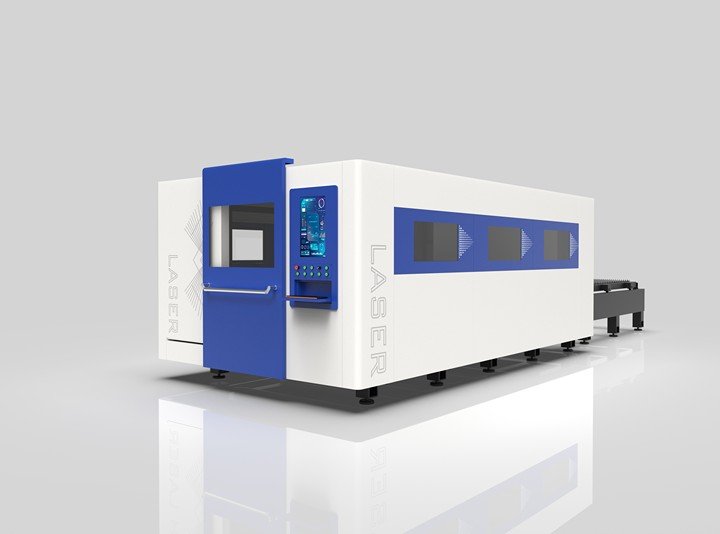All blog posts
Explore the world of design and learn how to create visually stunning artwork.
How Does the Thickness of Geomembranes Affect Seepage Prevention?
4 1 月, 2025 | by caoxuepeng0921@gmail.com
What Are Chlorine Tablets? A Beginner’s Essential Guide to the Product
4 1 月, 2025 | by caoxuepeng0921@gmail.com
How Laser Technology Enhances Industrial Production Efficiency
4 1 月, 2025 | by caoxuepeng0921@gmail.com
How to Choose the Right Electric Tricycle for Yourself: A Practical Guide
4 1 月, 2025 | by caoxuepeng0921@gmail.com
Geomembranes have become essential materials in various industries, particularly in construction and environmental projects. As a leading geomembrane manufacturer, we frequently receive questions regarding how the thickness of geomembranes influences their ability to prevent seepage. This blog post aims to address this question comprehensively, while also guiding customers who are looking for the best geomembrane buy for their projects.

II. What Are Geomembranes and Their Purpose?
Geomembranes are synthetic membranes made from materials like high-density polyethylene (HDPE), low-density polyethylene (LDPE), and polyvinyl chloride (PVC). These membranes serve as an impermeable barrier to control fluid migration in a wide range of applications. From waste management to water containment, geomembranes have become a cornerstone of modern infrastructure development.
When considering a buy geomembrane option, thickness is one of the most critical factors. While geomembranes are inherently effective at preventing fluid seepage, their performance can vary significantly depending on their thickness. Understanding this relationship is crucial for ensuring long-lasting and efficient outcomes for your projects.
III. The Role of Thickness in Seepage Prevention
The thickness of a geomembrane impacts its seepage prevention capabilities in several ways. Below, we’ll explore the key factors:
A. Resistance to Punctures
Thicker geomembranes are inherently more resistant to punctures caused by sharp objects, uneven surfaces, or installation equipment. For example, in landfill applications, geomembranes must withstand the pressure of waste materials, some of which may be sharp or abrasive. A thicker geomembrane provides greater durability and reduces the risk of leakage caused by punctures.
When customers seek the best geomembrane buy, understanding the specific conditions of the installation site can help determine the appropriate thickness to balance durability and cost.
B. Tensile Strength and Flexibility
While thicker geomembranes tend to offer better tensile strength, they may also sacrifice some flexibility. Flexibility is critical for installations where the geomembrane needs to conform to uneven surfaces or tight corners. On the other hand, in projects like reservoirs or canals, where the surface is relatively flat, thicker geomembranes are more suitable as they offer maximum strength and protection against seepage.
C. Long-Term Durability
The lifespan of a geomembrane is also influenced by its thickness. Thicker geomembranes tend to degrade more slowly over time when exposed to harsh environmental conditions such as UV radiation, chemical exposure, or physical stress. For projects with a long-term horizon, investing in a thicker geomembrane ensures reduced maintenance costs and a more reliable seepage prevention solution.
IV. Balancing Thickness and Cost Efficiency
While thicker geomembranes provide enhanced protection, they are also more expensive due to the additional material required. It is important to assess the specific requirements of your project and consult with experts to determine the optimal thickness. Striking the right balance between performance and cost can help you achieve the best geomembrane buy for your needs.
A. Application-Specific Recommendations
Landfill Liners: Thicker geomembranes (1.5mm to 3mm) are often required due to the high risk of punctures and chemical exposure.
Water Reservoirs: Medium-thickness geomembranes (1mm to 1.5mm) are typically sufficient for preventing seepage and ensuring durability.
Agricultural Ponds: Thinner geomembranes (0.75mm to 1mm) can be used to save costs, provided that the site conditions are less demanding.
B. Consulting Experts
Our team of professionals can help you evaluate your project’s specific needs. When you buy geomembrane products from us, we ensure that you get not only the right thickness but also the best quality materials for your application.
V. Quality Control and Installation Best Practices
Selecting the right geomembrane thickness is only one part of the equation. Proper installation and quality control are equally important to ensure optimal seepage prevention. Here are a few tips:
Site Preparation: The installation site must be free of sharp objects, rocks, and debris that could puncture the geomembrane.
Welding and Sealing: Properly welding and sealing geomembrane sheets ensures that seams remain watertight.
Regular Inspections: Post-installation inspections help identify potential vulnerabilities and prevent seepage issues before they escalate.
By combining the right geomembrane thickness with professional installation, you can achieve a highly effective seepage prevention system that stands the test of time.
VI. How to Make the Best Geomembrane Buy
When choosing geomembranes, thickness is only one of the many factors to consider. Material type, project-specific requirements, and supplier reliability all play a role in making the right decision. To ensure you get the best geomembrane buy, follow these steps:
Work with a Trusted Manufacturer: Choose a supplier with a proven track record of delivering high-quality geomembranes. Look for certifications and customer reviews to validate their expertise.
Consider Application Requirements: Different projects have unique demands. Consult with experts to match the geomembrane thickness and material to your specific needs.
Evaluate Long-Term Costs: While thicker geomembranes may have a higher upfront cost, their durability and reduced maintenance requirements often lead to greater cost savings over time.
VII. Conclusion
The thickness of geomembranes plays a crucial role in their ability to prevent seepage. Thicker membranes offer enhanced durability, resistance to punctures, and long-term reliability, making them a superior choice for demanding applications. However, it is essential to balance performance with cost efficiency by carefully evaluating the requirements of your project.
As a leading manufacturer, we are committed to helping you make the most informed decisions when you buy geomembrane products. Whether you need a thin, flexible membrane for an agricultural pond or a thick, robust liner for a landfill, our team is here to provide expert guidance and top-quality materials. Contact us today to explore the best geomembrane solutions for your needs.



